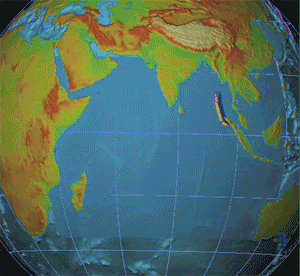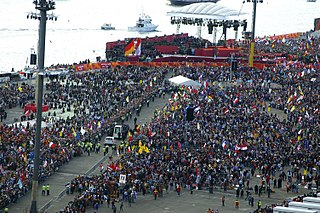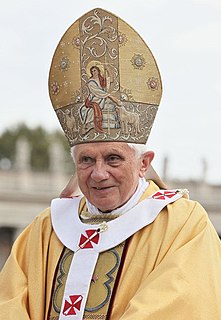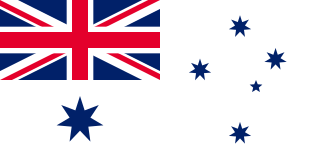
The Howard Government supported the disarmament of Iraq during the Iraq disarmament crisis. Australia later provided one of the four most substantial combat force contingents during the 2003 invasion of Iraq, under the operational codename Operation Falconer. Part of its contingent were among the first forces to enter Iraq after the official "execute" order. The initial Australian force consisted of three Royal Australian Navy ships, a 500-strong special forces task group, two AP-3C Orion maritime patrol aircraft, two B707 Air-to-Air refuelling aircraft, C-130 Hercules transport aircraft and No. 75 Squadron RAAF. Combat forces committed to Operation Falconer for the 2003 Invasion were withdrawn during 2003. Under the name Operation Catalyst, Australian combat troops were redeployed to Iraq in 2005, however, and assumed responsibility for supporting Iraqi security forces in one of Iraq's southern provinces. These troops began withdrawing from Iraq on 1 June 2008 and were completely withdrawn by 28 July 2009.

The Australian contribution to the war in Afghanistan has been known as Operation Slipper and Operation Highroad.

Woomera, officially Woomera Village, is a town located in the Far North region of South Australia in Australia, approximately 446 kilometres (277 mi) north of Adelaide. In common usage, "Woomera" also refers to the wider RAAF Woomera Range Complex (WRC), a large Australian Defence Force aerospace and systems testing range covering an area of approximately 122,000 square kilometres (47,000 sq mi) operated by the Royal Australian Air Force.

The Australian Active Service Medal (AASM) is an Australian military decoration. It was authorised on 13 September 1988 to recognise prescribed service in "warlike" operations, backdated to February 1975. It is awarded with a clasp to denote the prescribed operation and subsequent awards of the medal are made in the form of additional clasps. In 2012, it was announced that the medal would no longer be issued for future operations, with the AASM and the Australian Service Medal being replaced by the Australian Operational Service Medal.

Operation Sumatra Assist was the Australian Defence Force's (ADFs) contribution to disaster relief in Indonesia following the 2004 Indian Ocean earthquake. ADF personnel were deployed within hours of the earthquake. They served mainly in Aceh. Medical and engineering staff were prominent, with helicopters and cargo aircraft, supported offshore by HMAS Kanimbla and its two Sea King helicopters.

The Australian Defence Organisation is an Australian Government organisation that consists of both the Australian Defence Force (ADF) and the civilian Department of Defence personnel supporting the ADF.

The Iraq Medal was instituted by Queen Elizabeth II on the advice of the Australian Prime Minister John Howard in 2004. The Iraq Medal is awarded to Australian Defence Force (ADF) personnel who served in or around Iraq. ADF personnel are also recognised by the 'IRAQ 2003' clasp to the Australian Active Service Medal.
The Vice Chief of the Defence Force (VCDF) is the military deputy to the Chief of the Defence Force (CDF) of Australia, and acts as the CDF in his absence under standing acting arrangements. Vice Admiral David Johnston, the incumbent VCDF, has held the position since 5 July 2018.
Operation Papua New Guinea Assist was the Australian Defence Force's contribution to the Australian humanitarian effort in Oro Province, Papua New Guinea following heavy flooding caused by Cyclone Guba in November 2007. The humanitarian effort was being led by AusAID and the ADF provided logistical support. The first ADF units involved in this operation deployed to Papua New Guinea on 21 November 2007 following a request from the PNG government. The operation was completed early December 2007.
The 1991 uprisings in Iraq were a series of anti-governmental intifada (rebellions) in Southern and Northern Iraq during the aftermath of the Gulf War in March–April 1991. On 16 May 1991, 75 Australian Defence Force (ADF) personnel were deployed to Kurdistan, northern Iraq on Operation Habitat, Australia's contribution to the multinational response known as Operation Provide Comfort.
The Australian Defence Force Investigative Service (ADFIS) is the body responsible for complex and major investigations involving the Australian Defence Force. The ADFIS conducts investigations of serious incidents and breaches of the Defence Force Discipline Act involving persons subject to DFDA jurisdiction. The ADFIS is a 'tri-service' unit and is manned by 150 members of the Royal Australian Navy, Australian Army and Royal Australian Air Force. It was established in 2007 and is headquartered in Canberra.
Operation Ramp was the name given to an Australian Defence Force (ADF) operation to support the evacuation of over 5,300 Australians and over 1,300 foreign nationals from the Lebanese ports of Beirut and Tyre during the 2006 Lebanon War. The evacuation was led by the Australian Department of Foreign Affairs and Trade (DFAT). The ADF deployed 22 personnel on 19 July 2006 to assist DFAT in a number of specialised roles, including support to the DFAT staff in Beirut, Cyprus and Turkey. A Task Force of 96 personnel was also deployed on 21 July 2006 that included:

The CatholicMilitary Ordinariate of Australia, is a Latin Church suffragan military ordinariate of the Roman Catholic Church immediately subject to the Holy See. It was established in 1969 and managed for administrative purposes by the Archdiocese of Sydney.

Operation Queensland Flood Assist is a complex, multi-Service activity by the Australian Defence Force (ADF) as a contribution to the response to the 2010–2011 Queensland floods. Coordinated to aid civilian emergency response efforts, at Federal inter-departmental level it is managed by Emergency Management Australia. It comprises units and personnel from the Royal Australian Navy (RAN), Australian Army, and Royal Australian Air Force (RAAF) operating as Joint Task Force 637. The operation was initially commanded by Colonel Luke Foster, based at Enoggera Barracks in Brisbane. When the ADF commitment was increased, command was transferred to Brigadier Paul McLachlan, Commander of the 7th Brigade, also based in Brisbane.

Sexual orientation and gender identity in the Australian military are no longer considered relevant considerations in the 21st century, with the Australian Defence Force (ADF) allowing LGBT people to serve openly and access the same entitlements as other personnel. The ban on gay and lesbian personnel was lifted by the Keating Government in 1992, with a 2000 study finding no discernible negative impacts on troop morale. In 2009, the First Rudd Government introduced equal entitlements to military retirement pensions and superannuation for the domestic partners of LGBTI personnel. Since 2010, transgender personnel may serve openly and may undergo gender transition with ADF support while continuing their military service. LGBTI personnel are also supported by the charity DEFGLIS, the Defence Force Lesbian Gay Bisexual Transgender and Intersex Information Service.

The Australian Operational Service Medal is a campaign medal established on 22 May 2012 to recognise service by Australian Defence Force (ADF) personnel on designated hazardous operations. It may also be awarded to civilians who serve alongside the ADF on designated operations under specific conditions.

The Australian Army Public Relations Service (AAPRS) was formed in 1994 from personnel of the Royal Australian Army Educational Corps, a separate corps to RAAEC.. The service provides public relations support to Australian Defence Force (ADF) operations, exercises and other activities, in Australia and overseas. It is tasked with supporting regional community relations activities through to the production of public relations product, such as video, still photography and text, in areas of operation for release in support of ADF strategic communications objectives. Personnel employed in the AAPRS include photographers, reporters and public relations officers.
The Chief of Joint Capabilities (CJC) is the head of the Joint Capabilities Group (JCG) in the Australian Department of Defence, part of the Australian Defence Organisation. This position was created on 1 July 2017. The current chief is Air Marshal Warren McDonald.

















